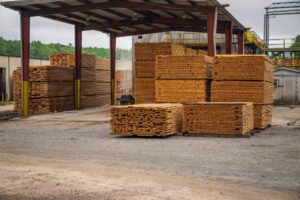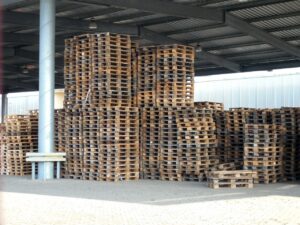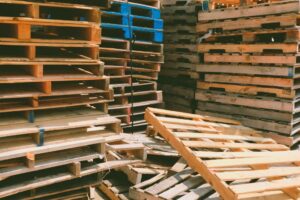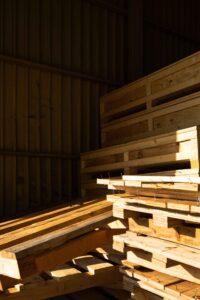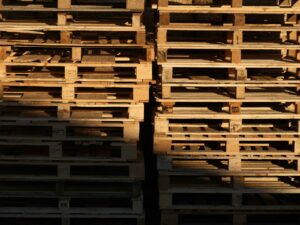A good cutting board is an essential tool in any kitchen, and the debate between bamboo and wood cutting boards often arises when choosing the right one. Both materials have their own set of advantages and disadvantages, and understanding these can help you make an informed decision. In this blog, we’ll compare bamboo and wood cutting boards, delve into their pros and cons, answer frequently asked questions, and offer tips for choosing the best option for your needs.
What Are Bamboo and Wood Cutting Boards?
- Bamboo Cutting Boards: Made from processed bamboo grass, these boards are lightweight, eco-friendly, and highly durable. They’re a popular choice for their sustainability and modern aesthetic.
- Wood Cutting Boards: Crafted from hardwoods like maple, walnut, or cherry, wood cutting boards are known for their classic appearance and durability.
Pros and Cons of Bamboo Cutting Boards
Pros:
- Eco-Friendly: Bamboo is a renewable resource that grows quickly, making it a sustainable choice.
- Lightweight: Easier to handle and move compared to many wood cutting boards.
- Hard Surface: Resistant to knife marks, maintaining a clean appearance longer.
- Affordable: Generally less expensive than hardwood options.
- Low Maintenance: Doesn’t require as much oiling as wood boards.
Cons:
- Knife Dullness: The hard surface of bamboo can dull knives faster than softer wood boards.
- Brittle Nature: Bamboo is more prone to cracking and splitting over time, especially if exposed to excessive moisture.
- Limited Aesthetic Appeal: Lacks the natural grain patterns and warmth of traditional wood boards.
- Not Ideal for Heavy Chopping: May not withstand heavy or prolonged use as well as some hardwood boards.
Pros and Cons of Wood Cutting Boards
Pros:
- Durability: Hardwoods like maple and walnut are incredibly durable and can withstand heavy use.
- Knife-Friendly: Softer surface compared to bamboo, keeping knives sharper for longer.
- Aesthetic Appeal: The natural grain and rich tones of wood add warmth and elegance to your kitchen.
- Self-Healing: Minor knife marks can “heal” over time, maintaining the board’s appearance.
- Versatility: Suitable for a wide range of kitchen tasks, from chopping vegetables to carving meat.
Cons:
- Maintenance: Requires regular oiling to prevent drying and cracking.
- Cost: High-quality wood cutting boards are often more expensive than bamboo.
- Heavier: Can be cumbersome to handle or move, especially larger boards.
- Absorbs Moisture: Wood is more porous, which can lead to bacterial growth if not properly cleaned and dried.
FAQs
1. Which is more hygienic: bamboo or wood cutting boards?
- Both are hygienic if properly maintained. Bamboo’s hard surface is less porous than wood, making it slightly more resistant to bacteria.
2. Do bamboo cutting boards damage knives?
- Bamboo’s hardness can dull knives faster than wood boards. Regular sharpening can mitigate this.
3. Are wood cutting boards dishwasher-safe?
- No, wood boards should never be placed in the dishwasher as it can cause warping and cracking.
4. How often should I oil my cutting board?
- Wood boards should be oiled every few weeks, while bamboo boards require less frequent oiling—around once a month.
5. Can bamboo cutting boards handle hot pots or pans?
- It’s best to avoid placing hot items on bamboo boards as they can warp or crack.
Tips for Choosing the Right Cutting Board
- Consider Usage: For light chopping and everyday use, bamboo is a great choice. For heavy-duty tasks, opt for a durable wood board.
- Prioritize Maintenance: If you prefer low-maintenance options, bamboo may suit you better. For those willing to invest time, wood boards offer longevity and elegance.
- Check Size and Weight: Ensure the board’s size and weight fit your kitchen setup and personal preference.
- Invest in Quality: Whether bamboo or wood, choose a high-quality board to ensure durability and performance.
- Use Proper Care: Always hand wash and dry your cutting board immediately to extend its life.
People also search for
- Bamboo vs wood cutting board
- Best cutting board for kitchen
- Bamboo cutting board pros and cons
- Wood cutting board maintenance tips
- Eco-friendly cutting boards
- Knife-friendly cutting boards
- Durable cutting boards for chefs


